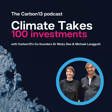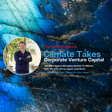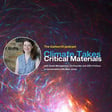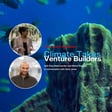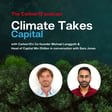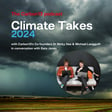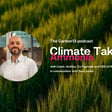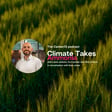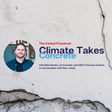
Climate Takes Sea Robots
Welcome to Carbon13's podcast "Climate Takes" where we ask special guests for their "takes" on their industry and climate challenge, as well as setting a call to action, asking what will it take to solve the climate emergency?
This episode is all about the ocean and the technology revolution taking place far beyond the landlubber's horizon. The fact that our guest's venture is backed by the European Space Agency tells you how we should be thinking of mankind's next frontiers.
Climate Takes Sea Robots speaks to Joyeeta Das, CEO and Co-founder of Samudra Ocean, a robotics and AI company for ocean-based carbon capture. Samudra was named winner of the 2024 COP29 Global Green Innovation Challenge People’s Choice Award, is nominated for the Earthshot Prize, and is a recipient of the 2024 Prix Bulles Pierre Cardin.
Joyeeta herself has founded three successful startups and serves on the boards of global companies, passionately advocating for the use of technology to drive social good. She has been recognized as an Innovate UK Women in Tech Ambassador, featured in the Financial Times BAME 100 list, and honored with the UK Pioneering Woman in Tech award from Diversity UK. Joyeeta’s influence as a speaker extends to prestigious platforms like the UN, the World Economic Forum, and the Scottish Seaweed Industry Association
Why does oceantech matter? The ocean is the primary source of protein for 3 billion people, its economy is estimated at over $2 trillion, it absorbs 25% of carbon emissions and could become one of the greatest weapons in the fight against global warming. Welcome on board, we hope you enjoy the podcast.
